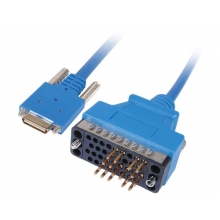- Optical Transceivers
- SFP+ Transceivers
- XENPAK Transceivers
- XFP Transceivers
- X2 Transceivers
- SFP Transceivers
- Compatible SFP
- 3Com SFP
- Alcatel-Lucent SFP
- Allied Telesis SFP
- Avaya SFP
- Brocade SFP
- Cisco SFP
- D-Link SFP
- Dell SFP
- Enterasys SFP
- Extreme SFP
- Force10 SFP
- Foundry SFP
- H3C SFP
- HP SFP
- Huawei SFP
- Intel SFP
- Juniper SFP
- Linksys SFP
- Marconi SFP
- McAfee SFP
- Netgear SFP
- Nortel SFP
- Planet SFP
- Q-logic SFP
- Redback SFP
- SMC SFP
- SUN SFP
- TRENDnet SFP
- ZYXEL SFP
- Other SFP
- FE SFP
- GE SFP
- OC3 SFP
- OC12 SFP
- OC48 SFP
- Copper SFP
- CWDM SFP
- DWDM SFP
- BIDI SFP
- Fiber Channel SFP
- Multi-Rate SFP
- SGMII SFP
- Compatible SFP
- GBIC Transceivers
- Passive Components
- Networking
- Cables
- Equipments
- Tools
- Special Offers


Authoritative name server
An authoritative name server is a name server that gives answers that have been configured by an original source, for example, the domain administrator or by dynamic DNS methods, in contrast to answers that were obtained via a regular DNS query to another name server. An authoritative-only name server only returns answers to queries about domain names that have been specifically configured by the administrator.
An authoritative name server can either be a master server or a slave server. A master server is a server that stores the original (master) copies of all zone records. A slave server uses an automatic updating mechanism of the DNS protocol in communication with its master to maintain an identical copy of the master records.Every DNS zone must be assigned a set of authoritative name servers that are installed in NS records in the parent zone.
When domain names are registered with a domain name registrar, their installation at the domain registry of a top level domain requires the assignment of a primary name server and at least one secondary name server. The requirement of multiple name servers aims to make the domain still functional even if one name server becomes inaccessible or inoperable.The designation of a primary name server is solely determined by the priority given to the domain name registrar. For this purpose, generally only the fully qualified domain name of the name server is required, unless the servers are contained in the registered domain, in which case the corresponding IP address is needed as well.Primary name servers are often master name servers, while secondary name server may be implemented as slave servers.



















































